Pola Negri plays a hotel chambermaid who finds herself the accomplice of an Austrian officer trapped behind enemy lines. There are spies, an assassination and much skulking about the corridors of the titular hotel. This was one of the biggest Hollywood hits for both Negri and director Mauritz Stiller.
I will also be reviewing the 1943 sound remake of the film, Five Graves to Cairo. Click here to skip to the talkie.
Home Media Availability: Released on DVD.
That’s what I call room service!
Hotel Imperial is a historically important film. It was one of the few films that legendary Swedish director Mauritz Stiller completed in Hollywood. It was a comeback of sorts for Pola Negri, whose transition from Germany to Hollywood was not as successful as it should have been. And then there is the… curse.
I don’t believe in curses but there are several stage and screen properties that are famous for them. The most notable is probably Macbeth… er, I mean, “The Scottish Play.”
Well, Hotel Imperial had a similar reputation in Hollywood for a while. Director Mauritz Stiller died a year after its release, as did the film’s main villain, George Siegmann. Pola Negri’s lover, Rudolph Valentino*, died during production and her American career was kaput before the decade was out. Leading man James Hall’s career crashed soon after and he was dead a decade later.
*Author’s Note: No comments regarding Valentino’s love life will be approved. That can of worms is staying firmly shut, thank you very much. I’m serious.
Now this could all be put down to coincidence. It was when Paramount decided to remake the film that the curse narrative really got going. Hotel Imperial was seen as an ideal vehicle for Marlene Dietrich, who possessed an earthy, sensual quality that was quite similar to Negri. The film was stuck in development limbo as a stream of directors and leading men came and went, many of whom departed after skirmishes with the star. Finally, Dietrich herself was replaced by Margaret Sullavan. However, Sullavan also had to drop out of the film when she tripped and broke her arm.
There was more hemming and hawing but much money had been spent and there was no film to show for it. Dietrich flirted with returning but Italian actress Isa Miranda was finally cast in the starring role with Ray Milland as her leading man. (I have read accounts of Milland being thrown from his horse and suffering a dangerous concussion but cannot track down primary sources for this anecdote.) Finally released in 1939, Hotel Imperial tanked badly at the U.S. box office.
Like I said, I don’t believe in curses. The troubles with Hotel Imperial (both versions) actually stem from lack of antibiotics (Stiller and Valentino), alcoholism (Hall), a temperamental personality (Dietrich) and the general disorganization at Paramount during Ernst Lubitsch’s tenure as production manager and his subsequent dismissal. Sullavan did break her arm but that’s it as far as confirmed injuries go.
In any case, the curse did not stop the film from being remade as Five Graves to Cairo, which seems to have been relatively incident-free. More on that later.
Let’s take a look at this tale of war, romance and espionage in its first Hollywood iteration. (The 1918 Hungarian version was said to star Victor Varconi while he was still Várkonyi Mihály. Like many other early Hungarian titles, it is missing and presumed lost.)
Lieutenant Paul Almasy (James Hall) is a dashing officer in the Austro-Hungarian cavalry. After a particularly bloody battle, he is separated from his comrades. The Russians are closing in on him as he races through the streets of a sleeping city. He slips into an alley, breaks a window and slips inside one of the buildings. Too exhausted to go further, he falls into a deep sleep.
Paul is inside the Hotel Imperial, a Hungarian hotel that is about to become the headquarters of the victorious Russians. Anna (Pola Negri) is a chambermaid and she discovers the sleeping Paul. The penalty for concealing an Austro-Hungarian officer is death but Anna doesn’t have to think twice. The hotel’s butler fled the fighting. Paul can wear his clothes and wait for an opportunity to sneak out of town.
Now Anna has bigger problems than just hiding Paul. Russian General Juschkiewitsch (George Siegmann) has taken a shine to her and means to make her his mistress. Anna has to walk to fine line of keeping his mitts off while not annoying him so much that he has her shot.
The plot thickens further because there is spying afoot. Petroff (Mikhael Vavitch) is the Russian army’s most brilliant agent. He is described as their most famous spy, which seems to be an oxymoron but it’s not my war. Petroff has the ability to sneak through Austrian lines and uncover the most damaging military information. He tells the general that he will soon return with the location and strength of the Austrian artillery.
If the Austrian counterintelligence seems to be lacking, the Russians are just as bad. You see, this entire conversation took place while Paul was serving tea. He heard everything. Anna stops him from following Petroff; the hotel is too closely watched and he will surely be caught.
Things get hairier when the Russians start asking for everyone’s papers (now they do this?) and Paul finds himself on the spot. Anna saves the day by running to the general for help. The poor butler lost his papers, surely the general can overlook it, hmm? The general lets Paul off the hook but now expects certain… considerations from Anna.
That evening, Petroff returns. He has the information about the Austrian artillery both in his head and on paper. Since the general is busy romancing Anna, Petroff decides to have a bath.
I thought Petroff was supposed to be smart. We all know that taking a bath in a movie is never a good idea unless one is the attractive female lead of a romantic comedy or some other safe genre. But a war picture? Stay dirty, my friend.
Paul finally has a smart idea and shoots Petroff as he soaks. Then he just stands there with Petroff’s report in his hand. Fortunately, Anna has shaken off the general and springs into action. She places Paul’s gun beside Petroff’s body and uses her master key to lock the bathroom from the inside. She burns the report and hustles Paul out through the service corridor.
The general hears of Petroff’s death and is immediately suspicious. The others think it is suicide as the door was locked from the inside (they apparently have never heard of a master key) but the general wonders why Petroff would kill himself before he had delivered his report.
Meanwhile, Paul is caught skulking and all suspicion rests on him. He needs an alibi for the time of the murder. Now who do you think is going to give him one?
Hotel Imperial is a bit of an odd duck as far as war pictures go. You see, during the First World War and the months leading up to it, Hollywood churned out scads of films portraying the Germany/Austro-Hungarian soldiers as complete monsters. The Hun was a rapacious beast who would attempt to despoil the heroine, destroy priceless works of art, shoot pensioners and babies and generally act the demon. (I hardly need add that we are talking about the First World War, not the second. I say this because far too many modern films set during the Great War seem to mix up their Germans and treat the Kaiser’s army as the Third Reich. This is ignorant and wrong. Stop it.)
Of course, the war ended and (after some resistance) a wave of talent from the former Hun nations came to Hollywood. Some movies still portrayed the Central Powers as villains but most war films of the mid- to late-twenties opted instead to portray them as fellow victims of battle, noble opposing knights or even as the heroes.
Hotel Imperial takes things one step further by not only treating its Austro-Hungarians as proud heroes but also flipping the narrative and handing the villain duties over to the Russians. In the ‘teens, Hollywood had enjoyed portraying Russian imperialists as antagonists and any rebels against the Czar as freedom fighters. After the Russian Revolution, things got murkier and American films tended to generally side with the Bolsheviks (or at least condemn the excesses of the Czarists) but in a rather vague manner and the stories often ended with the romantic pair fleeing the violence, presumably to drive taxis in Paris or something.
The concept of Russian=Evil was not yet in place the way it would be during the Cold War. Twenties audiences and critics remembered that Russia had been an ally during the Great War and it seemed very odd for that country to be turned into the enemy. In its review of the film, Photoplay pointed out this peculiar state of affairs.
“The time is 1915, so it deals with the war, but instead of presenting our late allies the Russians in their usual heroic guise, they are villains of deepest dye, and the Austrians, once hated, are made heroes. Not that it matters if a good story hangs in the balance, but times have certainly changed since the Liberty Loans — if you remember them.”
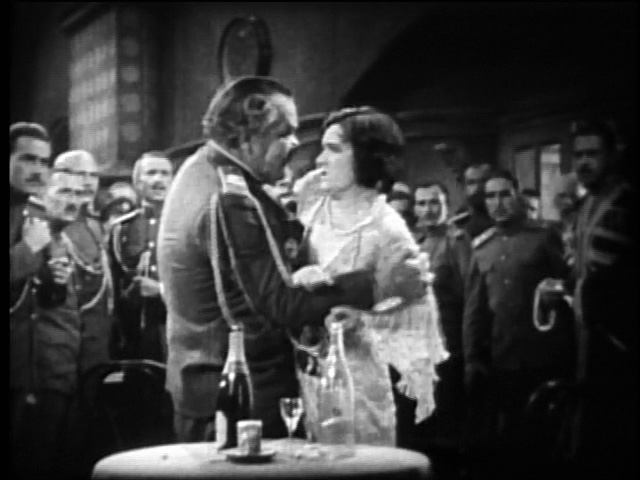
This role reversal can be traced back to the film’s source material, a 1917 play by Hungarian author Lajos Biro. Biro would receive an Oscar nomination for another Russian-themed film about a randy general, The Last Command. Now clearly a Hungarian play written during WWI would feature the Hungarians as heroic and the Allies as naughty. However, the basic story did not depend on Russian villainy for its narrative. It could just as easily have been, say, an English officer trapped behind German lines, which was the twist that Billy Wilder used in his updated 1943 version of the story, Five Graves to Cairo. (More on that in a moment, I promise.)
Likely, the heroic Austro-Hungarian angle was kept in order to please leading lady Pola Negri (who was Polish but whose career took off in Germany) and producer Erich Pommer, who was quite German.
I know that Hotel Imperial has quite a following but I have always been vaguely disappointed in it. I was never able to put my finger on what was missing before so I decided to use this review to make an effort to understand why my reaction was so meh.
The odd hero/villain dynamic is not what sinks the film. As Photoplay pointed out, the most important thing is that the story is good. There are issues with the plot but the film’s single biggest flaw is its characters.
Pola Negri was an actress of great power and range but she needed something to work with. The character of Anna is very heroic, bold and patriotic. In other words, she could be any heroine from any war picture ever made. The same is true of the dashing Paul. He is brave and noble and as fine an officer as you would ever wish to meet but his character has no real depth.
In fact, the only character with any complexity is General Juschkiewitsch. He is jealous and stubborn but he keeps his wits in spite of being smitten by Anna—or so he thinks.
The story is… inconsistent at best. Half the time, the film dances about in melodrama territory with Paul practically gnawing the bannister as he thinks about Anna with the general. To get the plot moving again, one or more characters have to pick up the idiot ball. No one imagines for a moment that Paul will be asked for his papers even though it seems to be fairly standard operating procedure. Petroff decides to take a bath when he should have sent his message to the general. Paul stands around looking stupid when he should have fled after the murder. Then he manages to hide himself where he will be immediately found but still cannot contrive to come up with his own alibi.
Interestingly, Pola Negri’s finest scene follows her character picking up that idiot ball. Paul has been caught and still has not invented an alibi. Desperate to save him, Anna says that he was with her in her room, if you know what I mean. How in the world was this a good idea with the general standing within earshot? Wouldn’t the revelation that Paul has cuckolded the general put him in even more danger? (Yes, I realize that the ruse did end up saving their lives but she did not know that. Why didn’t she just nudge the old porter to say that Paul was with him polishing the silver?)
In any case, George Seigmann takes the opportunity to gulp down some scenery but Pola is more than a match for him. They snarl and scream and destroy property. Negri allows her character’s suppressed disgust to come out in a frenzy of hatred. It’s quite remarkable. The scene is a little silly but Pola sells it.
On the plus side, Hotel Imperial is absolutely gorgeous. Mauritz Stiller knew how to create atmosphere and you can practically smell the powder smoke of the battlefield. The hotel is really two sets in one. There is the shabby-chic hotel on the surface and then the winding maze of service corridors and hidden doorways.
Light, shadows, a nimble camera and imaginatively framed shots ensure that there is always something interesting to see.
Hotel Imperial is not a bad film by any means and it is quite good in spots. However, a little bit more care with the character development could have yielded a masterpiece. It is worth seeing for Stiller’s direction and Negri’s performance but it falls short of greatness.
Movies Silently’s Score: ★★★
Where can I see it?
Hotel Imperial has been released on DVD by Grapevine.
Silents vs. Talkies
Hotel Imperial (1927) vs. Five Graves to Cairo (1943)
Hotel Imperial has had a fascinating ride through movie history. The 1918 version is unavailable but judging by the basic plot and the time and place in which it was made, there is little doubt that it was meant as a romantic propaganda film. The war long over in 1927, the story was changed to a straightforward romance with a war in the background. The 1939 remake also followed this path, though the Second World War had its official start a mere four months after the film’s premiere.
Five Graves to Cairo
Home Media Availability: Released on DVD.
Billy Wilder had tasted smashing success with his first outing as Hollywood director, The Major and the Minor. To follow it up, he took a look at the story properties that were already owned by Paramount.
Wilder and his script collaborator Charles Brackett took the story of Hotel Imperial and returned it to its propagandistic roots. (According to Some Like it Wilder, Lajos Biro himself suggested that Wilder update his play.) The action was moved to North Africa, the officer in disguise became an Englishman, the chambermaid was French and in a torn-from-the-headlines stroke, the general was none other than Field Marshal Erwin Rommel.
The film opens with one of the most haunting of images. An empty desert. A lone tank with an officer’s dead body draped across the top. The exhaust pipe was hit and the five-man crew is dead but the tank is still alive and chugging its way across the sand. Then one of the bodies moves, a lone survivor. He climbs out and falls onto the ground and we see his dog tag with his name and rank. And that is how we meet Corporal John Bramble (Franchot Tone).
All right, Mr. Wilder, you’ve got our attention.
Bramble stumbles through the desert and comes upon an eerie bombed-out town. One of the few standing structures is the Empress of Britain hotel. It is owned by Farid (Akim Tamiroff), a gentle Egyptian who is determined to save the delirious Bramble. Mouche (Anne Baxter) is the French chambermaid and she is as hard as nails. She not only refuses to help, she openly wishes that the approaching Germans will shoot the Englishman. (As far as the accent goes, I will be charitable and say that Baxter tries.)
The Germans arrive on cue. Bramble slips away and hides in the employees-only section of the hotel. Mouche, meanwhile, has set about flirting with Lieutenant Schwegler (Peter van Eyck), who is the victorious Field Marshall Rommel’s adjutant.
Bramble has found a suit of civilian clothes in the closet. They belonged to Paul Davos, the hotel’s waiter. It seems that he was killed in the bombing. Bramble proposes to take his identity. Farid is terrified and Mouche says she will simply turn him in. Bramble invents a sob story that makes her think twice but it looks like the jig is up anyway when Schwegler orders him to the field marshal’s new briefing room (previously the hotel’s lobby).
Twenty-four minutes in, we finally see the main antagonist. Erich von Stroheim is back in uniform again and he is clearly enjoying himself. And his Rommel reveals a plot twist: Davos the waiter was a German spy. Bramble realizes he has a golden opportunity to get close to the Germans and assassinate the enemy’s most dangerous general.
Bramble is nobody’s idea of a dashing officer, not even to himself. He was an insurance clerk in civilian life; in short, a drone and he finds amusing irony in the fact that out of the entire British army, he is the soldier who has a chance to assassinate Rommel.
Mouche, however, has her own agenda. Her brother is a POW in Germany, captured at Dunkirk (she blames the British) and she plans to use her charms on Rommel to get him free. Obviously, Bramble’s assassination scheme is not going to work with that little scenario.
So, will Bramble use his spy identity to put a bullet in Rommel? Will Mouche free her brother… or turn Bramble in? We have a nicely tangled batch of motivations here. Things get especially interesting when Bramble makes contact with a superior officer and gets new orders. He is not, under any circumstances, to kill Rommel. Instead, he must use his position to discover the secret supply caches that are the key to Rommel’s victorious campaign. Easy martyrdom is out. Bramble must take the more difficult and uncomfortable path of a spy, something he has no training for.
If the plot gets any thicker, it will be a solid mass. And with that, I leave you.
As propaganda pictures go, this one is quite excellent. Of course, the Nazis make perfectly hissable baddies in any movie but this time they are also fairly deep characters. Anyone can don a German uniform and goosestep around doing villainous things villainously. Wilder and von Stroheim manage to make the fictional Rommel much more interesting. A soldier’s soldier, Movie Rommel is ruthless and arrogant but not without humor and a strange sense of honor. (The real Rommel, you will recall, was forced to commit suicide for his part in an attempt to assassinate Hitler.) Schwegler seems to be in war for the girls but he would rather talk them into bed than resort to the Hunnish tactics of his Great War celluloid forbearers. Are the Nazis the bad guys? Of course. But they are also actual characters and all the more dangerous for it.
In spite of being a “rah, rah, hurray for our side!” film on the surface, Billy Wilder, Movie-Maker points out that there are a fair amount of scenes that demonstrate the futility of war. The zombie tank at the opening, the ruined town, Mouche’s brothers… war is awful.
Wilder also manages to slyly lampshade the original Hotel Imperial, as well as numerous other wartime dramas. When Mouche offers her arrangement to Rommel (her brother’s release from German custody in exchange for her… gratitude), he listens to her spiel politely and then explains that it is the stuff of bad melodrama. In any case, she’s doing it wrong. It’s supposed to be her lover that she is trying to save not her brother. If she wishes to get anyone released, she must submit a form in triplicate through the proper channels. Von Stroheim owns the scene and the gloriously meta casting of the original Man You Love to Hate in the part really adds to the fun.
You see, during the Great War, von Stroheim gained fame as the most Hunnish of the Hun. One famous iteration was in The Heart of Humanity, a ripoff of D.W. Griffith’s Hearts of the World. Von Stroheim tears off a Red Cross nurse’s uniform with his teeth, drags a screaming baby out of her arms and throws it out the second story window. I am not making this up. I don’t think I could. I don’t know how anyone could. (Answer: Erich von Stroheim could.)
As expected the dialogue snaps with wit and more than its share of black humor. Really, it’s much funnier than any war picture released in 1943 had a right to be but that is part of the reason why it has aged so well. Akim Tamiroff is amusing as the official comic relief but Bramble adds a bit of dry wit himself.
Five Graves to Cairo was made over a decade after the talkie revolution but its connections to silent film ran deep. Besides von Stroheim, the movie boasted the talents of John Seitz, who had famously (under the direction of Rex Ingram) had filmed Valentino’s signature tango in The Four Horsemen of the Apocalypse.
Seitz still had it and Wilder makes excellent use of his skills. I was particularly impressed by the climactic fight, which is suggested by a dropped flashlight and a few sparks of gunfire. Minimalist and highly effective.
The final war montage is a little clichéd but we can’t have everything. (Montage is the only way to fight, saves heaps of time. Why, I’ve seen the entire First World War started, fought and finished in just thirty seconds of montage. A little montage could have saved millions of lives.)
The film is a melodrama—even Wilder said so—but it has class and style, a real flair and intelligence that puts it above other wartime offerings. Is it Casablanca? No, but what is? The fact remains that Five Graves to Cairo works and works very well.
And the winner is…
The Talkie
There was really no competition. While Hotel Imperial is gorgeous and boasts some splendid acting from its leading lady, Five Graves to Cairo is the smarter film and its reworking of the characters yields something much more interesting than a typical war picture. It also has something that Hotel Imperial lacks, for the most part. It has a keen sense of gallows humor.
Oh, and Five Graves to Cairo is considered (unfairly) one of Wilder’s lesser films but it really shouldn’t come as a surprise that it has been overshadowed. You see, Wilder’s next directorial effort was Double Indemnity.
☙❦❧
Like what you’re reading? Please consider sponsoring me on Patreon. All patrons will get early previews of upcoming features, exclusive polls and other goodies.
Disclosure: Some links included in this post may be affiliate links to products sold by Amazon and as an Amazon Associate I earn from qualifying purchases.



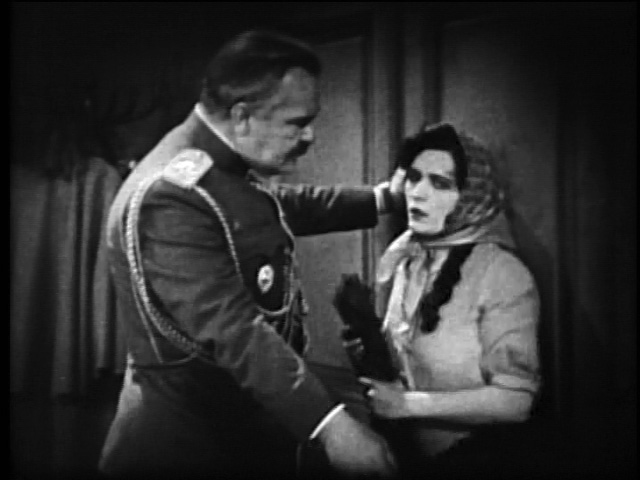
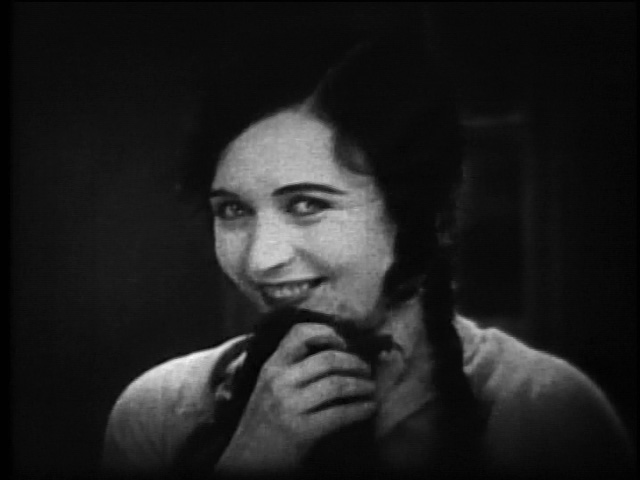

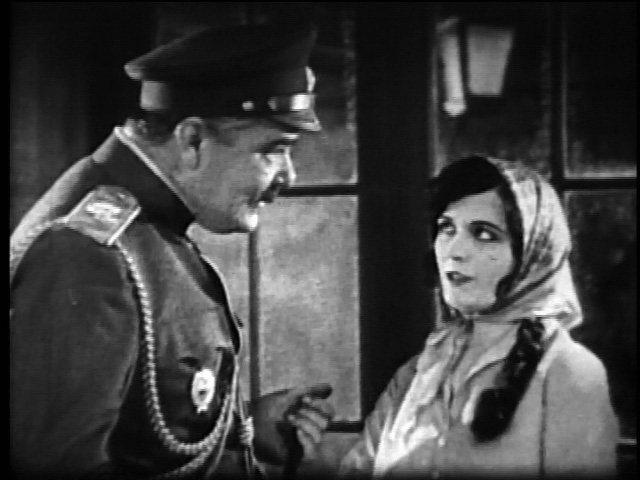


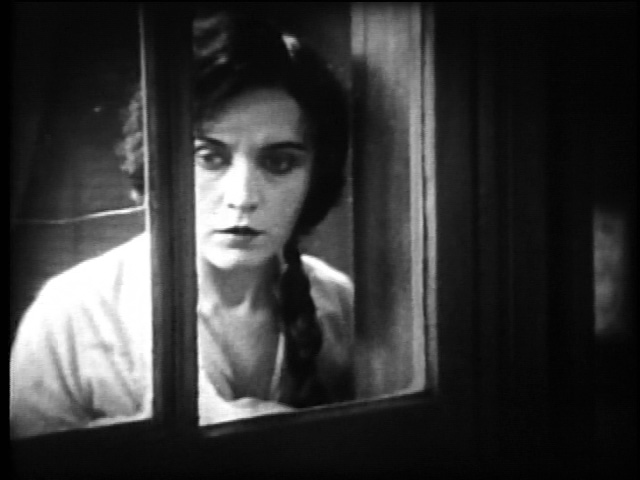

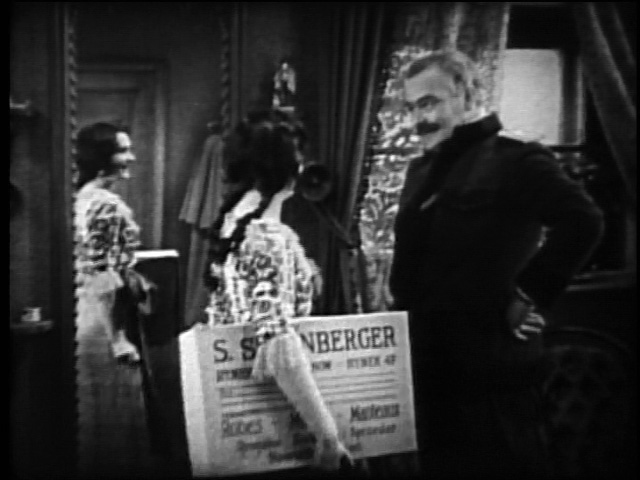
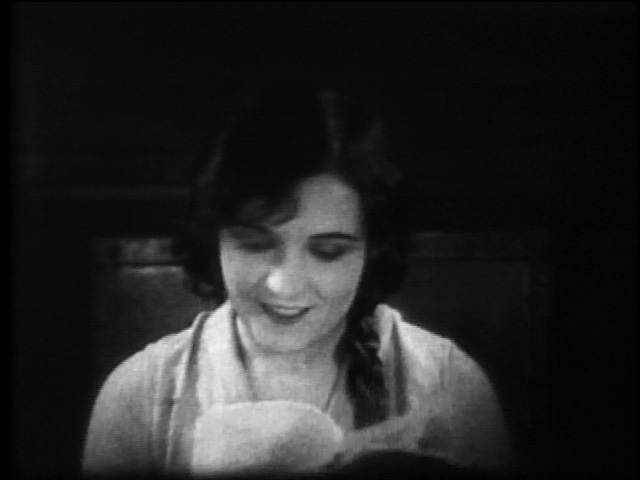

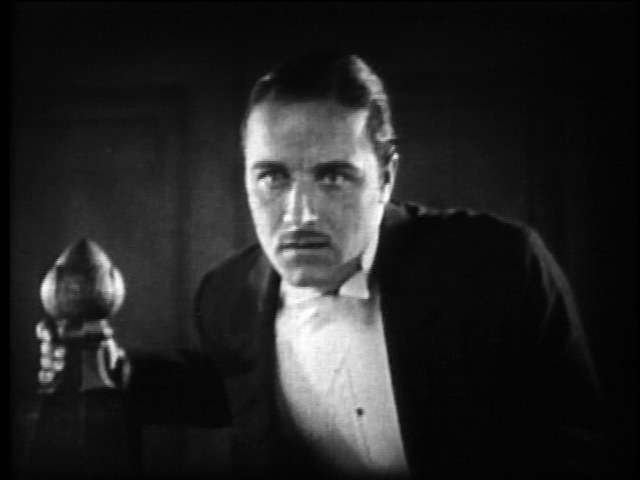






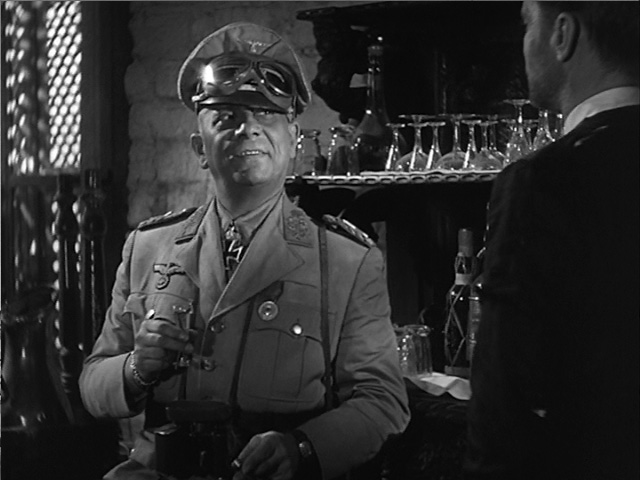
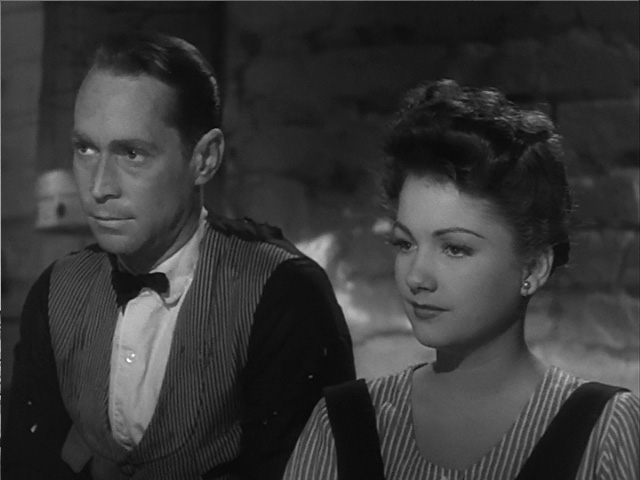
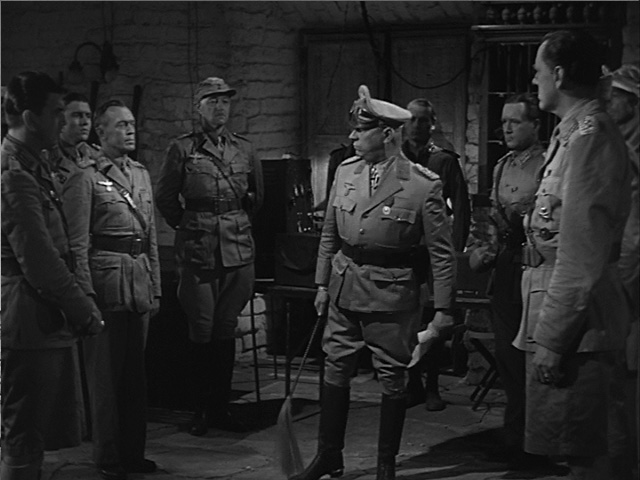
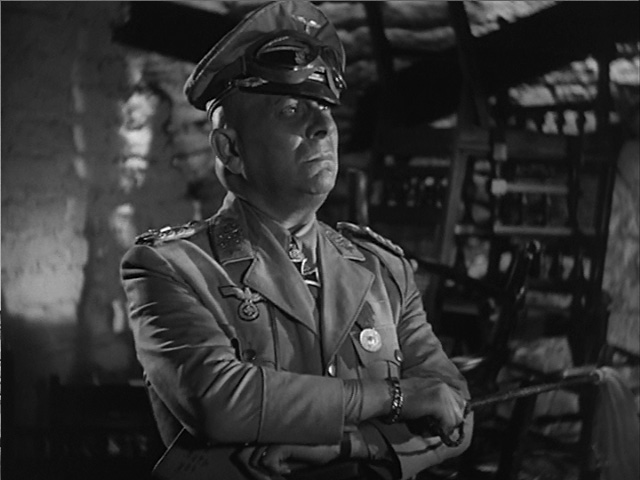

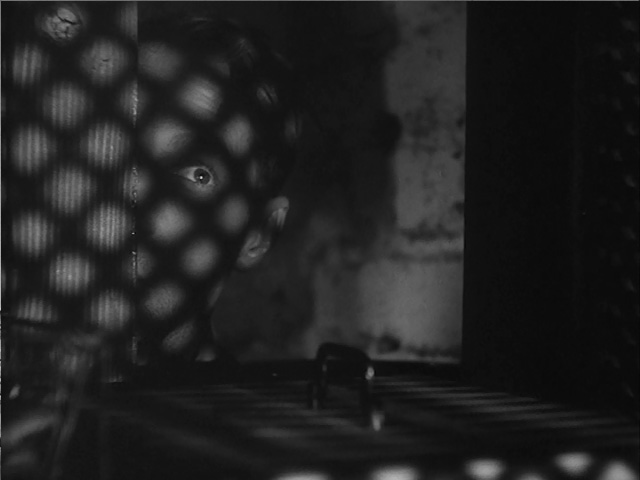
I never knew Five Graves to Cairo was a remake, much less the third one. I’ve only seen bits of other Pola Negri films, but I’m kind of curious to see this. Of course, I’m a big fan of the Wilder film; it’s the first really good movie he directed in Hollywood, for me (not terribly fond of The Major and the Minor, I’m afraid). Tone, for me, was more effective as a supporting player or villain, but he’s quite good here, and I didn’t mind Baxter’s accent, as she was effective otherwise. The real stars, of course, are Von Stroheim and Tamiroff, who it seems was Hollywood’s go-to star in playing a variety of ethnic roles, and acquits himself well here.
Anyway, nice write-up.
The Major and the Minor is not really my favorite either, I tend to prefer my Wilder on the nasty side. I liked Tone this time but I agree that he was generally better at letting other performers do the heavy lifting. (Have you read his IMDB bio? It’s a hilarious exercise in fan-blind myth-building and wildly inappropriate Joan Crawford bashing.)
I think Hotel Imperial is okay but if you want to see Negri at her best, I recommend Barbed Wire, A Woman of the World, The Wildcat or Sumurun.
Fun review(s), Fritzi! And great job on the Snoopathon!
Thank you!
I too did not know that Five Graves was a remake of Hotel Imperial. That was a nice essay on both films. “To get the plot moving again, one or more characters have to pick up the idiot ball.” — That was a nice phrase that could apply to so many films. Thank you, Fritzi, for sharing this with us.
Glad you enjoyed it! Yes, the idiot ball was particularly annoying as Pola’s character was so smart before she was handed the task of messing things up.
Some great new spy-related stuff to view- Thanks for hosting! 🙂
My pleasure! And thanks for taking part
Never been a FIVE GRAVES fane, but I am in the Pola fan club. I have this in my silents DVD collection, in the “yet to be seen” pile (which is pleasantly large, with all these silents being released). I’ll shift this to the top of the pile, as the mood has been brought! Thanks for the review, and for the fun Blogathon!
Thank you! 🙂 I was very pleasantly surprised when I first saw Pola. So many silent documentaries make her out to be a nut but I love the energy and warmth that she brings to her roles.
I haven’t seen the Negri film, but Five Graves is one of my favorite movies. Mouche descending the staircase and going from planning to turn Bramble in to sacrificing her brother’s life for him is amazing, and the fight scene you mentioned is top notch, too. And the dialogue! I’m glad you liked it too.
I am going to have to track down that Von Stroheim Heart of Humanity pic though. That sounds *nuts*.
So glad you like it too! It’s a real hidden gem.
Heart of Humanity is about 30 minutes too long but von Stroheim… Let’s just say that you will probably have to be careful not to hurt your jaw when it hits the floor. Supposedly, Von was the uncredited director. I believe it for that scene at least.
I always enjoy the Five Graves to Cairo, but have never seen the original. Heck – I didn’t even know there WAS an original…and with Pola Negri too!
Shallow Observation: Did Pola Negri EVER have a bad hair day?
Five Graves to Cairo is one of my new favorites.
Pola was always flawless 😉
Loved this, thanks! My favorite line: “He is described as their most famous spy, which seems to be an oxymoron but it’s not my war.” I enjoyed the links sprinkled throughout, too! All those taxi drivers…
Thanks! So glad you liked it!
echoing many comments here but Five Graves is a movie I really love and had no idea it was a remake! So this was really a fascinating read for me too. Thanks for the fun blogathon, you are a great hostess, cheers
Aww, thanks so much! I came at the movies from the opposite direction. I knew about Hotel Imperial but Five Graves was a new discovery for me and a very happy one too. 🙂
What a fantastic double review! And chock full of your wonderful wit (I think I did a spit-take at “Montage is the only way to fight, saves heaps of time…”). I love FIVE GRAVES and you get to the heart of what makes it more than just another WWII propaganda melodrama. The characters on both sides really are credible and well-written. As for Von Stroheim’s “duet” scene with Baxter, I practically fell out of my chair when the uber-Hun is like, “Thanks, but no thanks.” A very meta joke indeed—and one that I only partially “got” before reading about the earlier iteration(s) of the plot as HOTEL IMPERIAL. As for the original, I’d heard of it but didn’t know much at all about it. I appreciate that you not only offer a detailed discussion of the film itself, but also how its choice of heroes and villains reflects a historical shift away from beastly Germans in Hollywood movies.
Plus, thanks for hosting such a fun blogathon!
Thank you so much! FIVE GRAVES was quite a discovery for me and I was delighted by the connections to the original.
It was a pleasure hosting and having you aboard 🙂
Hi, Fritzi. I come only today to comment because I just saw Five Graves to Cairo. I think Billy Wilder did great, and the plot became so thrilling and intricate! On the other hand, I agree that Hotel Imperial is beautiful to look at, and for the most time Pola Negri dominates the silent. Anne Baxter only becames the heroin in the end of the talkie. As a matter of curiosity, when the general appeared in Hotel Imperial, I thought “hey, Von Stroheim would be great for this part!” 🙂
Kisses!
Glad you enjoyed it. Yes, von Stroheim was quite excellent. 🙂